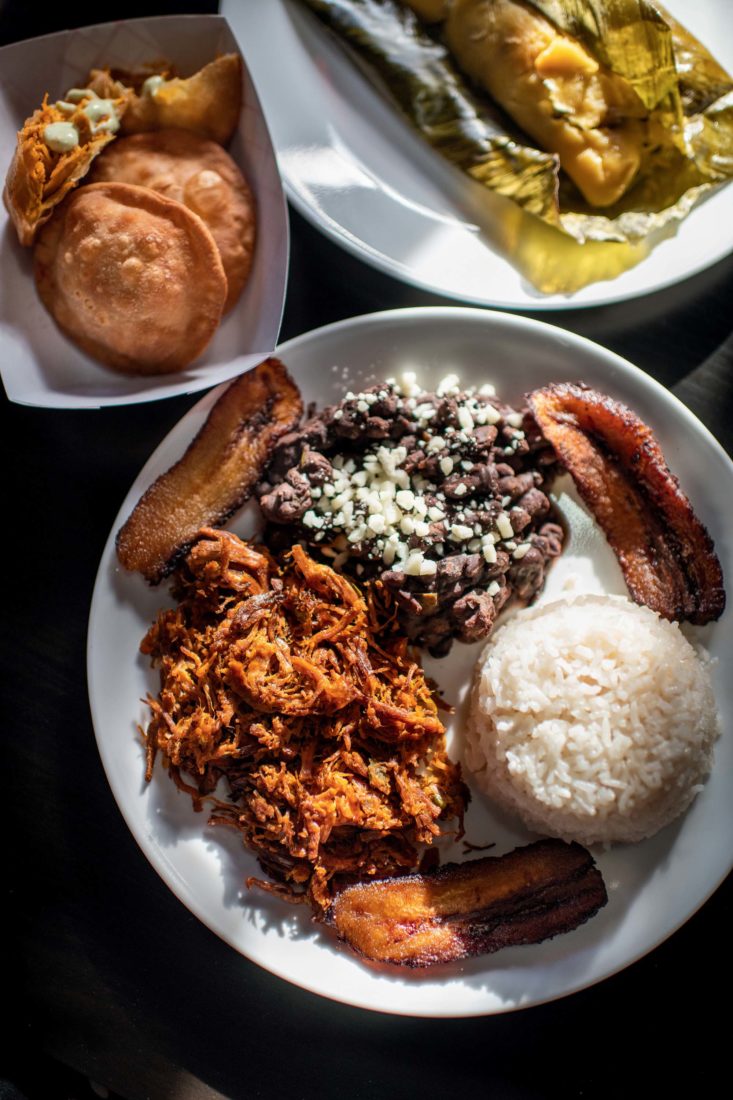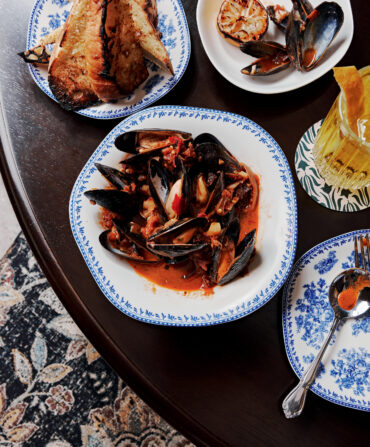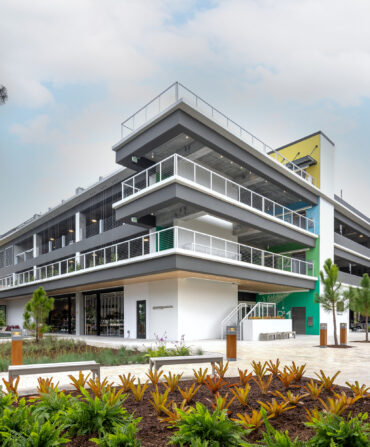“We make arepas like they make in the city of Maracaibo,” Elimar Mendoza says, referring to the Venezuelan port and oil center. A college student, Mendoza works the counter and makes tres leches cake at Patacón Latin Cuisine, a Venezuelan restaurant on the fringe of downtown Lafayette, Louisiana. Across from a pizza joint, down from a kickboxing studio, Patacón does business in a corrugated tin box of a building that once housed a plumbing supply company. “These are not Colombian; they put cheese in their dough,” Mendoza tells me, with what might be a slight frown. “These taste like home.”
This is a story about arepas and economies and chicken salad and crude. This is a story about the oil-field work that links Venezuela in South America and Lafayette in southern Louisiana. This is a story of green plantains, smashed flat and fried hard to serve as the “bread” for a sandwich called a patacón, a signature food of northwestern Venezuela and the namesake of this family restaurant. And this is a story about Wanda Lugo, Mendoza’s aunt, who shapes cornmeal dough into patties and bakes them to make arepas using the skill and care with which grandmothers here have long kneaded and shaped and baked wheat-flour dough for Sunday-morning biscuits.
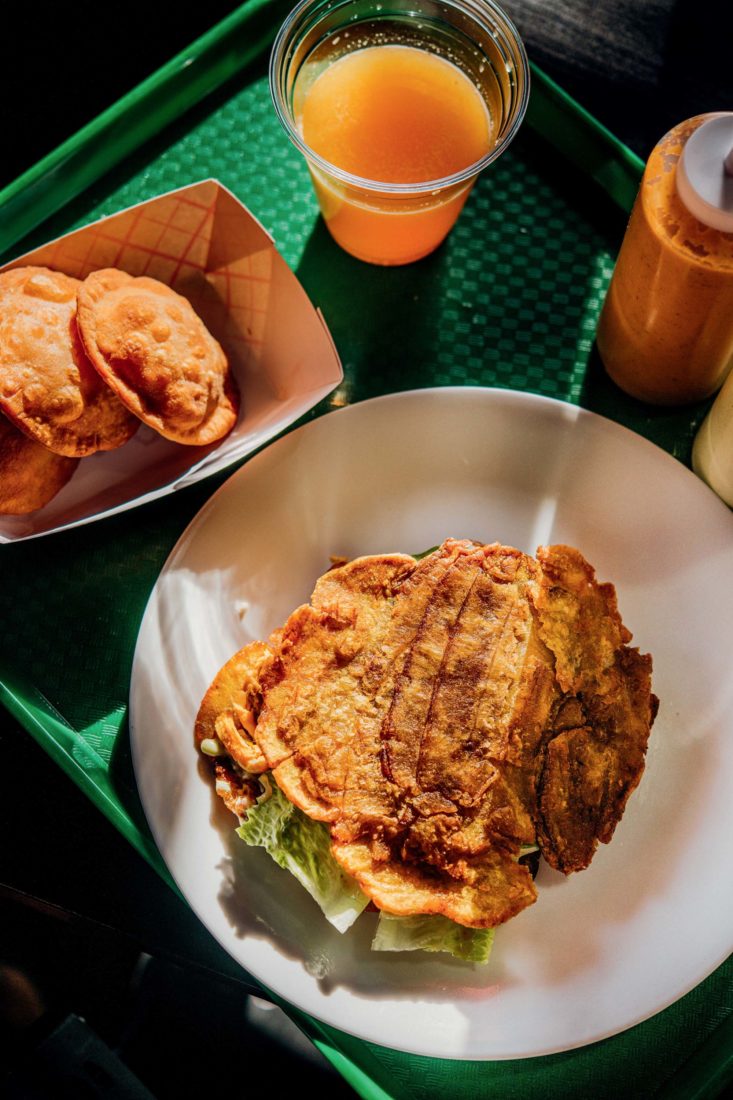
Made with shredded chicken and mayonnaise-creamed avocado, layered with avocado slices and tucked into split disks of what taste like griddle-fried hot-water cornbread, Lugo’s reina pepiada arepas suggest garden-club chicken salad sandwiches, filtered through the buttermilk-and-cornbread ethic of country cooking. They taste of the past. They taste of the future.
Before she opened her Lafayette restaurant, painted in bright splashes of yellow and wainscoted with roofing tin, Wanda Lugo lived in what was once the wealthiest country in South America. Buoyed by crude oil, Maracaibo was a Houston for Venezuela, known for shop-ping and nightlife and glitz and excess. That was then. Over the past several years, oil prices have plummeted, the economy has death-spiraled, and a socialist government has transformed Venezuela into what some critics see as a dictatorship by default. An exodus is in process.

The Lugo family got out in 2006. That’s when Wanda’s husband, Jose Lugo, an electronics engineer, got a premonition of the crisis to come and petitioned Halliburton for a transfer. Almost ten years gone from home, Wanda opened Patacón in 2015. Her aim was to share the food of her homeland and prove to new neighbors that Venezuela was more than the site of a fiscal implosion. Today she feeds economic refugees from Venezuela, expatriates from Colombia and other arepa-eating countries, and, increasingly, locals who grew up on pork-and-rice-gouged boudin links instead of potato-and-cheese-stuffed pastelitos.
Louisiana is an ideal place to open a Venezuelan restaurant. Refineries here have long processed 40 percent or more of Venezuelan crude. With that exchange have come Venezuelan people, an embassy in New Orleans, and Venezuelan food. Patacón straddles the world Wanda’s family left and the world they now claim. Food connections come easy. Her empanadas taste like the meat pies popular here in Cajun Country. And her pabellón criollo— piled with stewed beef, fried sweet plantains, white rice, and long-cooked black beans—recalls the plate lunches served by country stores hereabouts.
Wanda grew up eating patacón sandwiches, filled with roasted pork and chicken, served by street vendors or at small cafés. But she rarely cooked them. That changed when she landed in Louisiana and began cooking Venezuelan dishes for a broader network of friends and family. She taught herself to smash and twice-fry the green plantains. She aimed to carry forward a story of her place. The patacóns she now makes are delicious, especially when stuffed with Louisiana shrimp, dressed with what tastes like tartar sauce, and brightened by a few squeezes from a bottle of orange-colored house-made hot sauce. But her arepas are what inspired me to eat Wanda’s cooking three times in two days.
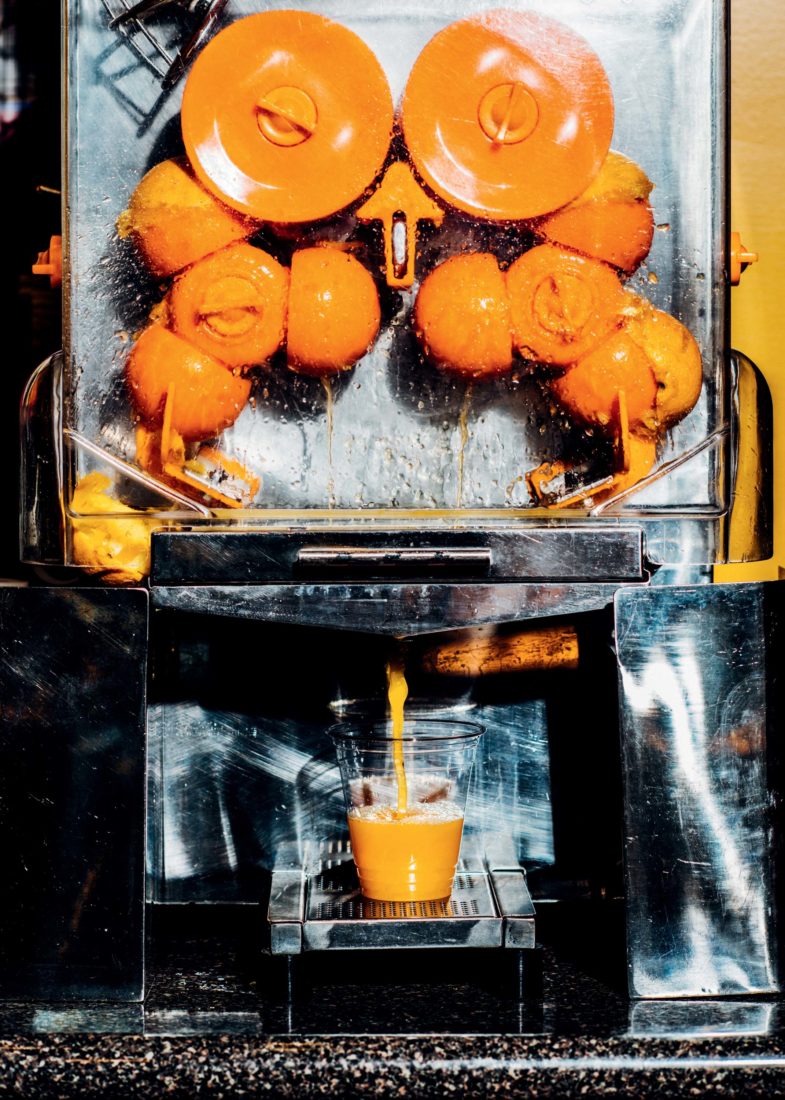
Wanda’s son, Daniel Lugo, who helps run the restaurant, recalls that his mother sent him off to school most mornings with fresh arepas, buttered and loaded with ham and cheese. The arepas at Patacón taste like those, Daniel says. In his voice, I hear the respect that many sons carry for the cooking of their mothers. What’s more, I hear the awe that a child gains as he begins to realize his parents know more of the secrets to life than he does.
At Patacón, Wanda has expanded her repertoire to build a restaurant that cooks with Louisiana ingredients and serves Louisiana folk. In her kitchen, that ethic translates as arepas studded with pork cracklings. And arepas brimming with crawfish. And those chicken-and-avocado reina pepiada arepas that taste like what the ladies who lunch will eat in the middle years of the twenty-first century.
Around the South today, arepas are seemingly everywhere. From Arepas Grill in Charlotte to Arepa Mia in Atlanta to Caracasville in Nashville, I recognize the sort of food that will sustain our region over the generations to come. And I recognize what Daniel and I have in common: Nowhere do I taste arepas that I like better than the ones his mother mixes and shapes and bakes here in the back of what was once a plumbing supply house, in a restaurant that makes a case for Venezuela and Louisiana as culinary and social companions.


